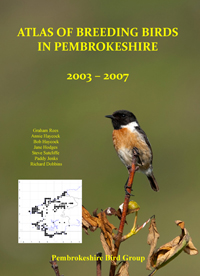Seabird mortality & oil spills - 2005 research
 Friday, November 15, 2013 at 11:55AM
Friday, November 15, 2013 at 11:55AM New research from the University of Sheffield has shown that major oil spills and a changing climate have had a far greater impact on populations of British sea birds than was previously thought.
A team led by Professor Tim Birkhead from the Department of Animal and Plant Sciences at the University of Sheffield, has shown for the first time that major oil spills double the mortality rate of adult guillemots in Britain, even though the pollution occurs hundred of miles from the birds' breeding grounds. The research, which is to be published in the November issue of Ecology Letters also shows a direct link between a warmer climate in the North Atlantic and a higher mortality rate among British guillemots.
Professor Birkhead's long-term guillemot study has been carried out on Skomer Island, Wales, since 1972. The length of the ongoing study has allowed the research team to study the effects of a number of serious winter oil spills on the guillemot population. Their findings show that highly publicised oil spills in southern Europe, such as the Prestige oil tanker disaster off the coast of Galicia, Spain, in November 2002, have far-reaching consequences on seabirds breeding far from the scene of the initial pollution.
The study has also found that consistently high values of the North Atlantic Oscillation (NAO) index (an annual measure of a large scale climatic phenomenon affecting winds, temperature and rainfall) for the past 30 years, has had a negative effect on the guillemot population of Skomer Island.
Professor Tim Birkhead of the University of Sheffield said: "Prior to our investigation of the guillemot population of Skomer Island, the impact of oil pollution on seabird mortality rates at a particular colony was difficult to quantify as oil spills usually occur in wintering areas where birds from many different colonies may be distributed over a wide area. However, our long-term monitoring of individually marked birds on Skomer Island has enabled us to see a direct correlation between major oil pollution events and a twofold increase in winter mortality rates of common guillemots.
"Our research has also shown that the NAO index has had a significant effect on the guillemot population. The consistently high values of this climatic phenomenon for the past 30 years may be due to human-induced global climate change. If this is the case, it would mean that seabirds are vulnerable to human activities on two counts: oil pollution from tanker spills and changes to the ecosystem as measured by the NAO index and caused by global climate change from man's burning of fossil fuels."


Reader Comments